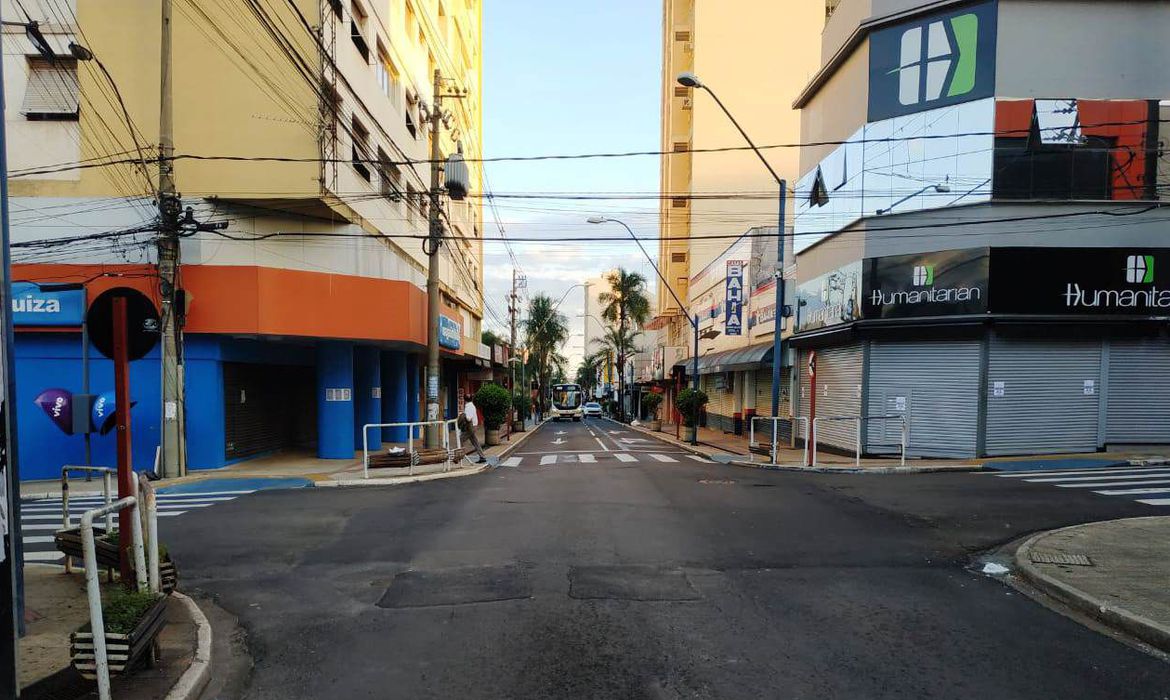RIO DE JANEIRO, BRAZIL – From noon yesterday, February 21st and until 11:59 PM next Tuesday February 23rd, the city of Araraquara, in the São Paulo countryside, is under lockdown, with a ban on street movement, pedestrian or vehicular. The goal is to try to stop the spread of new strains of the coronavirus circulating in the city. Araraquara is located 270 kilometers north of the state capital, with an estimated population of 238,300.

Ward and intensive care unit (ICU) beds are operating at full occupancy in the municipality’s healthcare facilities and close to their limit in the whole region. According to the city hall, there was also a significant increase in infections and complications of the disease in younger patients.
The number of deaths from covid-19 in Araraquara doubled in February (in only 19 days) when compared to the whole month of January, when 24 people died from the disease. This month, when the Manaus strain was detected, there were 2,633 new cases and 51 deaths, 21 in the past week. In total, the city has recorded 171 deaths from covid-19 since the outbreak of the pandemic last year.
According to Sunday’s epidemiological report, 217 new cases of the disease have been registered, totaling 13,454. A total of 218 patients are hospitalized Sunday, 63 of whom in the ICU.
As a result, a municipal decree came into force on February 15th, tightening social isolation measures, and on Friday, February 19th, the city government issued a new order tightening restrictions on circulation. As of Wednesday, February 24th, the city will return to the red phase of the São Paulo plan, with the same measures established in the preceding decree, with the operation of essential services until 8 PM.
Explaining the new decree, city hall refers to the circulation of the new Manaus strain in Araraquara, the significant surge in cases, hospitalizations and deaths, the imminent collapse of the healthcare system and the unsatisfactory rate of social isolation reached by the city since February 15th, at around 40%.
Restrictions during lockdown
During the lockdown period (from noon on Sunday until midnight Tuesday), the circulation of vehicles and pedestrians in the city is banned. Citizens will be allowed to leave their homes only to buy medicine, seek medical care or assistance to people or animals, attend to urgent or imperative needs, or provide services allowed under the decree.
When approached by inspectors, citizens will be required to present, in addition to their ID documents: a purchase receipt or medical prescription for the drug purchased or to be purchased; a certificate proving attendance at a healthcare facility; an employment booklet, paycheck, articles of incorporation of a company of which they are an owner, a third-party certificate identifying the individual, issued by the declarant, and the address where services are provided; a ticket or picture of the ticket (in the case of intercity transport); or evidence of an emergency or pressing need by any means or statement.
All commercial activities will be banned, including gas stations, supermarkets (only by delivery), services (including bank branches) and industrial activities, be it in person or for the practice of internal, external, productive, maintenance, cleaning or other activities of any kind, except security.
Public transportation will also be banned, and gas stations may only be used to supply municipal, state, and federal public services, including the State Police.
Only private security services will be allowed; industrial activities whose stoppage leads to damages to the establishment’s structure, equipment and machinery, in addition to the reduction of supplies, implementing the greatest possible reduction in production and the number of employees; the provision of individual transport services for people and animals by companies, cooperatives or individuals, including through transport apps; the activity of home delivery exclusively by supermarkets, provided that the establishment remains closed and operates with up to 30% of its staff.
Municipal, state and federal public services will be suspended, closed to thepublic. However, healthcare, security, emergency justice, water supply and treatment, electric power, basic sanitation, organic waste collection, telecommunications, social assistance, funeral services, cemeteries, food security, and related administrative services will continue to operate.
Source: Agencia Brasil

